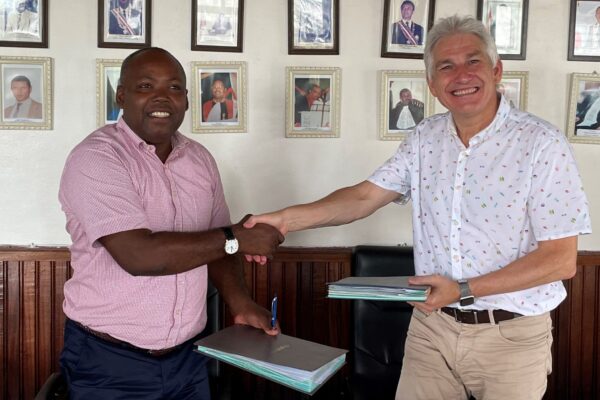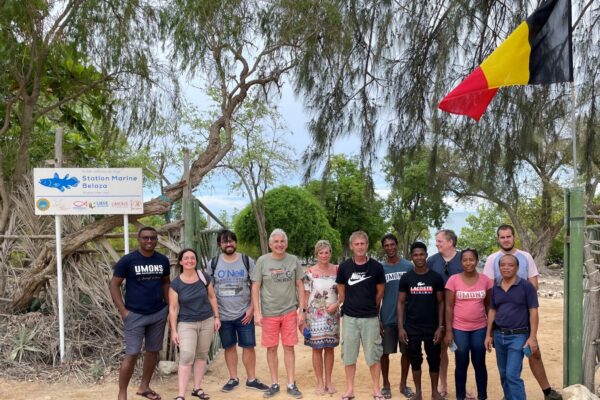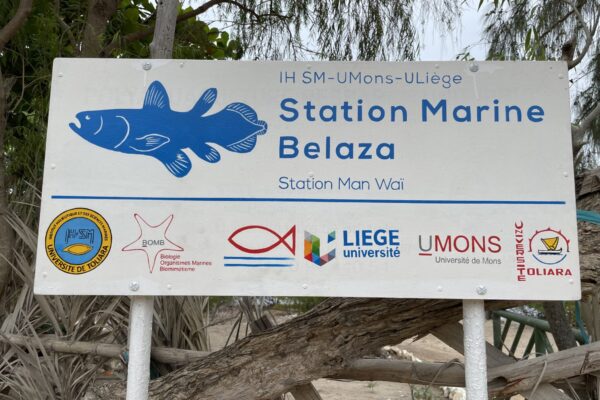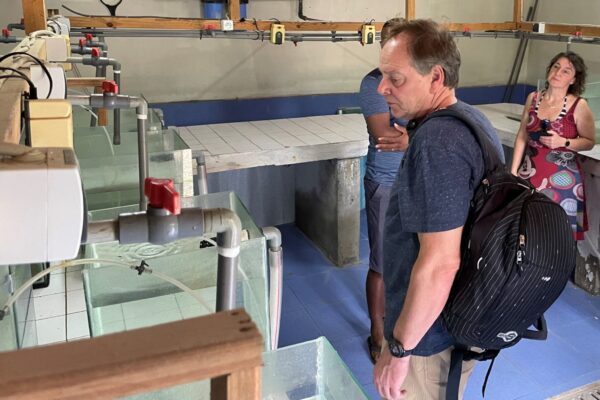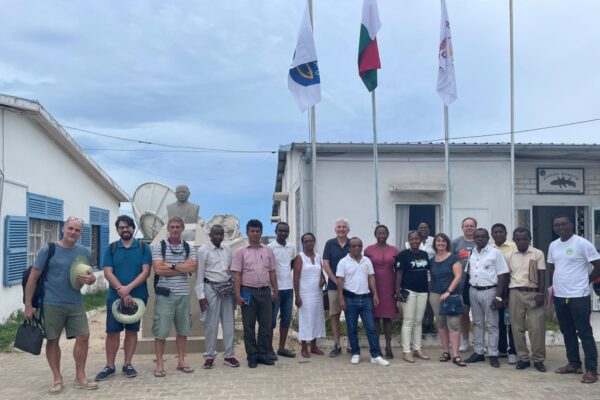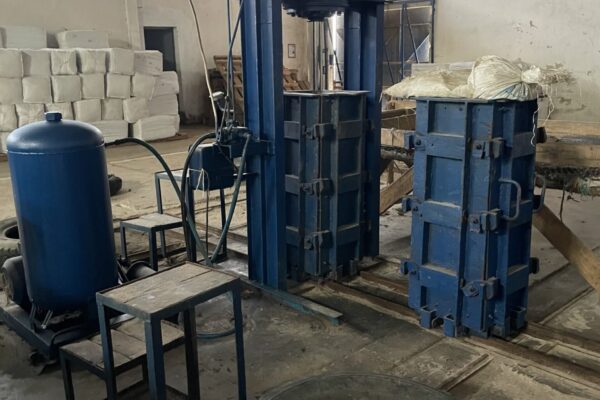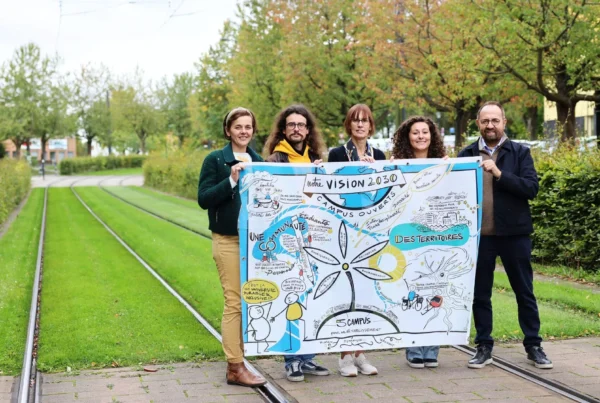After more than 25 years of presence in Madagascar, the University of Mons is on the path to increase its teaching and research activities as well as its support to society in partnership with local actors
The Rector of the University of Mons (Belium), Prof. Philippe Dubois, recently went to Madagascar to visit and meet with Malagasy counterparts in order to consolidate, intensify and diversify the teaching, research and social support activities carried out by the Belgian university on the island. The Rector travelled together with the Vice-Rector for International Relations, Prof. Laurence Ris; the Vice-Rector for Research, Prof. Ruddy Wattiez, and Prof. Igor Eeckhout from the Biology Department.
Upon his return, Rector Dubois shared his optimistic conclusions about the trip: “It is with pride and enthusiasm that I look back on the tremendous contribution of our teachers and researchers, especially our researchers in Marine Biology. Beyond the fundamental research activities, launched nearly 25 years ago with funding from the International Cooperation, in fields such as sea cucumber, algae or spirulina cultivation, it is the social dimension of our presence in Madagascar that has impressed me. Our role as the University of Hainaut (one of the 10 provinces of Belgium, where the University of Mons is located) is to multiply initiatives like this, even at the other end of the Earth.”
Facts and numbers on the presence of University of Mons in Madagascar
An agreement has been signed between the University of Mons and the Malagasy University of Tuléar, located on the southwest coast of the Indian Ocean. The cornerstone of this partnership is the setting up of international training courses in fields such as artisanal mariculture and village agriculture. The aim is to train around twenty scholarship students, mostly from developing countries, but not only, as Canada is interested in this initiative.
Courses on sea cucumbers, marine (micro)algae, spirulina and coral culture will be given by professors from the University of Mons, the University of Tuléar (more precisely from the Institute of Halieutic Research and Marine Sciences of Tuléar – IHSM), but also from the University of Liège (Belgium).
The partners also discussed the possibility of taking into account other aspects of ongoing research activities in the field of marine biology with regard to societal and technological issues (engineering sciences).
The delegation from University of Mons also visited the Tulear Institute of Fisheries Research and Marine Science’s infrastructures as a nod to more than 25 years of collaboration with the marine biology laboratory of Faculty of Sciences of the University.
Concretely, the collaboration lead to the writing of several cotutelle thesis, but also to a few internships and to the creation and the support of two remarkable spin-offs: IOT and Ocean Farmers. The latter is active in the farming of marine algae. It directly employs 150 people, but also provides a living for 2,500 farming households in 40 villages who live off the contract with Ocean Farmers.
Indian Ocean Trepang is the other spin-off from the University of Mons and the University of Tuléar. It was launched in 2013 based on another spin-off from the same universities (Madagascar Holothurie S.A.) and built on the expertise of UMONS marine biologists as well as a patent on the controlled hatching of sea cucumbers. Today, the company employs about 150 people and supports 300 farm households.
The partnership with the University of Mons is continuing and has resulted in a cotutelle agreement with the University of Tuléar and the Indian Ocean Trepang and internship agreements for Mons Master’s students, who have already had the opportunity to acquire practical knowledge in Madagascar.
The delegation also visited the facilities of the Belaza marine station, which the University of Mons shares with the University of Tuléar and the University of Liège (Belgium) and where research is also being carried out on the development of mariculture (sea cucumbers, algae, etc.).
Finally, a meeting was held at the University of Antananarivo, the capital of Madagascar, during which the Rector of the University of Mons and his Malagasy counterpart, Prof. Mamy Ravelomanana, shared their wish to strengthen their long-term collaboration, not only in marine biology but also on issues such as societal and environmental economics.
Read the whole original article: La ministra de Ciencia e Innovación, Diana Morant, visita la ETSI de Industriales y de Telecomunicación de la Universidad de Cantabria.


